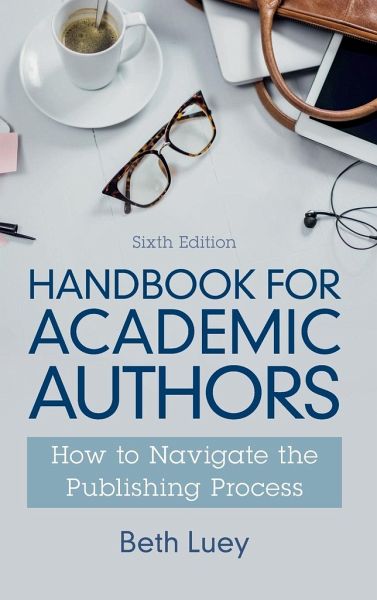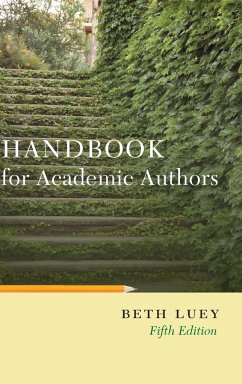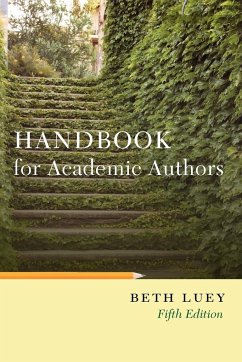
Handbook for Academic Authors
Versandkostenfrei!
Versandfertig in 1-2 Wochen
64,99 €
inkl. MwSt.
Weitere Ausgaben:

PAYBACK Punkte
32 °P sammeln!
Whether you are a faculty member, a librarian, an independent scholar, the junior member of a research team, or a writer outside academia, Handbook for Academic Authors will help you select the right publisher, submit a winning proposal, negotiate a favorable contract, and work with your editor to ensure your research reaches the largest possible audience. The book provides advice on writing for different audiences and managing the mechanics of authorship, including manuscript preparation, acquiring illustrations, proofreading, and indexing. To address the major changes in scholarly publishing...
Whether you are a faculty member, a librarian, an independent scholar, the junior member of a research team, or a writer outside academia, Handbook for Academic Authors will help you select the right publisher, submit a winning proposal, negotiate a favorable contract, and work with your editor to ensure your research reaches the largest possible audience. The book provides advice on writing for different audiences and managing the mechanics of authorship, including manuscript preparation, acquiring illustrations, proofreading, and indexing. To address the major changes in scholarly publishing over the last decade, the sixth edition has been revised and updated to include discussions about open access and digital publishing, the use of social media as a marketing tool, changes within academia, and concerns of new entrants into academia. Written in a personalized, accessible style, Handbook for Academic Authors offers sound advice and encouragement to a wide range of aspiring academic authors.














